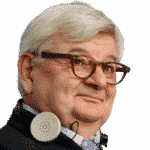It has been only two and a half months since Donald Trump returned to the White House, but the world has already fundamentally changed.
Trump is rapidly undermining US trade relations and the global system of free trade that the United States helped establish after 1945. His bid to “liberate” the US economy with escalating tariffs represents an essential change from the more modest trade-war tactics deployed during his first term. According to the Yale Budget Lab, the average US tariff rate is now at its highest level since 1909.
Trump is also casting doubt on America’s longstanding alliances, not least NATO and the security guarantees that it represents. In late February, he publicly humiliated Volodymyr Zelensky in the Oval Office, then showed the Ukrainian president the door. Since then, US support for Ukraine has effectively ended, giving Russian President Vladimir Putin a stronger hand than he has had in years. Trump has made no effort to hide the fact that his sympathies lie with Russia, the aggressor, rather than with Ukraine, the beleaguered democracy that has been fighting for its freedom and sovereignty.
Trump has also suggested that the US should take control of Gaza, expel its population to other Arab states, and turn the enclave into a resort. And he continues to talk about annexing Canada, Greenland, and the Panama Canal. Apparently, it is not enough for the US to control most of the Western Hemisphere; Trump wants to own it, too.
While everyone expected turmoil, few anticipated brazen imperialism. Pundits and commentators have long interpreted “America First” as a revival of the isolationist movement that was active before World War II, but Trump seems to have something else in mind. He wants a world where a handful of global superpowers compete – violently if necessary – for resources, raw materials, and spheres of influence.
On the home front, he has allowed the world’s richest man, Elon Musk – the vanguard leader of a Silicon Valley-based techno-fascist movement – to gut the American state under the guise of cost-cutting, elimination of waste and fraud, and deregulation. The mass firings and demolition of entire agencies will have lasting consequences, which are painful to consider. The gutting of USAID alone may result in hundreds of thousands of deaths in Africa and other vulnerable regions of the world.
Faced with such cruel, wanton destruction, one must ask the essential question: What does any of this actually do for the US? Will it make the country stronger? If we evaluate the administration’s decisions strictly in light of America’s own interests – maintaining its global power and influence – the only possible answer is no. Trump’s policies, both foreign and domestic, increasingly seem to be geared toward weakening America – or even toward its self-destruction.
After all, the US gains nothing from hostility toward Europe. By alienating its allies, it is destroying one of the main pillars of its superpower status. For decades, “the West” – an unrivaled geopolitical framework of military alliances and trade relationships – served as a force multiplier for US power and influence. It is why America handily won the Cold War and grew stronger than any power in history. Who benefits from throwing all that away? Only Russia and China, which have been quietly watching and waiting as America commits suicide.
We can already say that there will be no return to the previous international order. Trump has destroyed trust in the US for at least a generation. American commitments are no longer credible. The country’s institutions – including major media outlets, universities, and law firms – are crumbling before our eyes. The US will still enjoy a unique geographical position between the Atlantic and the Pacific, but the rest of the world will know that Trumpism has become an enduring feature of its politics.
The disappearance of “the West” and the collapse of American leadership (and democracy) will dramatically alter world politics in the twenty-first century. Order will give way to chaos, and the risk of war will increase as rival superpowers jockey for position. American society itself will remain polarized, consumed by irrationalism, and prone to conspiracy theories.
In his 1935 novel It Can’t Happen Here, Sinclair Lewis imagines the rise of a dictator to mirror the Fascist and Nazi regimes in Europe. Now, 90 years later, his dystopia is materializing. Like Goethe following the Battle of Valmy in 1792, when the Prussian army retreated before the French revolutionary forces, we are witnessing the start of a new era in world history. The pain, hardship, and injustice will get only worse from here.
Joschka Fischer was Germany’s foreign minister and vice-chancellor from 1998 to 2005 and a leader in the German Green Party for almost 20 years.

